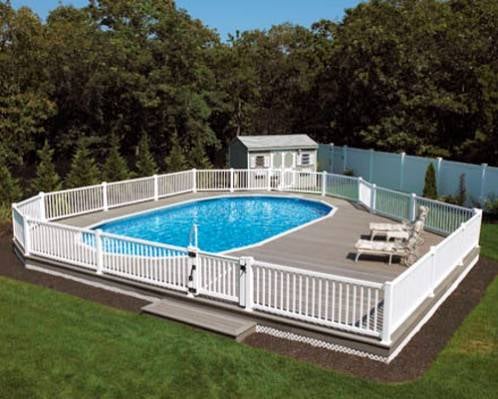Services to citizens
- Legal Affairs
- Animals
- Trees
- Residual waste collections
- Permits and certificates
- Taxation
- Hall Rentals and Reservations
- Public Safety
- Infrastructure
Management - Publications
- Municipal By-Laws
- Scholarships
- Contests
- Solicitations
Swimming pools and spas
BEFORE installing a swimming pool or a spa, you must plan ahead!
Obtain a permit
Installing a pool or a spa on your property requires the city’s prior approval by means of a construction permit in the case of an in-ground pool, or a certificate of authorization for an above-ground pool or a spa. Either document is available at the Town Hall for a fee of $150 in the case of an in-ground or above-ground swimming pool and of $75 for a spa.
A $1000 deposit for completion and compliance of works is also required when applying for a permit (except for spas with a capacity not exceeding 2,000 litres). This deposit will be reimbursed once the work is complete, and following an inspection of your installations by a city employee confirming they are compliant with municipal and provincial regulations.
The permit application must be submitted with a copy of the property’s certificate of location as well as a detailed layout plan of the pool and other related treatments or structures (to scale and of professionnal quality). To obtain the form, simply use the Request Online System to submit your request for a permit. All required documents to be attached must be scanned as photos of the documents will not be accepted.
Ensure compliance with applicable regulations
Control access to the pool
The Provincial Residential Swimming Pool Safety Regulation and Article 5.7 of Zoning By-Law No. 90-58 imposes safety standards for installing pools and spas. In particular, all fences preventing access to the pool must be fitted with a gate equipped with automatic self-closing and self-locking devices and the filter system must be positioned in such a way as not to provide access to the water. The device must be locked or padlocked when the pool is not under the direct supervision of an adult.
IMPORTANT AMENDMENT TO THE PROVINCIAL REGULATION |
|
Considering the costs and the delays associated with the installation of an enclosure, especially for inground and semi-inground swimming pools, pool owners have until September 30, 2025 to comply with the amended regulation. Note that the treatment of an enclosure requires a municipal permit issued free of charge. Residents are asked to contact our employee in charge of pool inspections at 514 694-4100, ext. 3134 for any question related to the new regulation. |
Know where to dig
Watch out for power lines
ONCE your swimming pool or spa is installed, INACCESSIBILITY, SUPERVISION AND VIGILANCE are the new watchwords!
Prevention is of utmost importance
Know the standards applicable to diving boards
Know how to react quickly
Questions?
The Kirkland Urban Planning Department can provide information on the provincial Residential Swimming Pool Regulation and advise you on how to ensure your pool installation fully and safely complies with all applicable rules and regulations.
The Department can be reached during regular business hours at the Town Hall’s Urban Planning counter, by calling 514 694-4100 or by email at [email protected].



